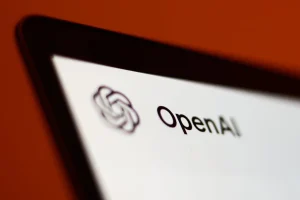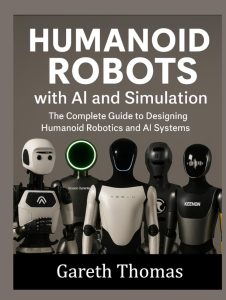The Future of Coding with GitHub

The world of coding is rapidly evolving, and GitHub is at the forefront of this transformation. By enabling developers to utilize multiple AI models simultaneously, GitHub is revolutionizing the coding experience. The platform’s innovative approach allows for more flexibility and efficiency.
As technology advances, the question shifts from which AI writes the best code to which AI is best suited for a specific task. GitHub’s unique strategy involves using a variety of models tailored to different coding challenges. This shift promises unprecedented improvements in coding and software development. Let’s delve into this exciting future.
A New Era of Coding Flexibility
GitHub’s innovative Copilot tool is transforming the way developers approach coding tasks. The tool provides access to multiple top-tier AI models, such as Claude 3.5 and soon Gemini 1.5 Pro. Developers can switch between models to best match their unique task requirements.
This flexibility resembles having a team of expert programmers at one’s fingertips, each offering diverse strengths and techniques. As these AI models continue to evolve, they promise to make coding more intuitive and accessible for both novices and veteran developers alike.
The Impact of AI on Problem-Solving
Coding involves intricate logic and problem-solving skills. With AI’s increasingly sophisticated capabilities, developers can expect enhanced efficiency and precision.
These developments hold potential benefits beyond coding, as they could improve AI’s ability to address challenges in various fields. The future may see AI mastering more comprehensive problem-solving skills.
Coding is a foundational skill for artificial general intelligence (AGI). As AI advances, it may approach human-like thinking, potentially changing the face of technology and innovation.
Advancements in AI Tools
New AI tools like Spark are emerging as game-changers in the coding industry. Spark simplifies the app-building process through easy-to-use prompts, lowering the barrier for newcomers.
For seasoned professionals, these tools offer enhanced flexibility and options for complex tasks. This democratization of AI tools paves the way for a more inclusive technological landscape.
By enabling both beginners and experts, AI tools encourage innovation and creativity across the industry. The potential for collaboration and growth is immense.
GitHub’s Strategic Role in Tech
GitHub is positioning itself as a key player in the tech world. By integrating AI into coding processes, it supports more efficient and effective software development.
The company’s move to offer multiple AI models is reflective of a broader trend towards AI-powered innovation in tech. As more companies follow suit, AI will become an integral part of technology strategies.
GitHub’s leadership in this arena could inspire other tech giants to embrace AI, creating a ripple effect across the industry.
The Transformation of AI Tools in Business
AI tools are not only transforming coding but also business operations. Companies like Sana are pioneering the integration of AI into business tools, making processes more efficient.
Sana’s AI assistant platform showcases how AI can handle complex, multi-step tasks autonomously. This advancement indicates a shift towards AI-driven efficiencies in various industries.
As businesses continue to adopt AI, they can expect improved productivity and innovation. This shift is setting new standards for business practices globally.
OpenAI’s Strategic Partnerships
OpenAI is exploring partnerships with major companies like Broadcom and TSMC. This move highlights the growing importance of collaboration in AI advancements.
By working with established tech leaders, OpenAI aims to refine its AI capabilities and production processes. These partnerships could redefine the boundaries of AI technology.
Collaboration is crucial for AI’s future, driving technological growth and innovation.
The Role of AI in business productivity
AI tools like TimeOS and Sourcely are reshaping how businesses manage productivity. These tools streamline processes by automating meeting notes and sourcing academic research.
By focusing on automation, AI can help businesses reduce time spent on administrative tasks, allowing more focus on strategic initiatives. This approach is critical for maintaining competitive advantages in fast-paced environments.
The use of AI in productivity tools demonstrates its value in enhancing operational efficiency and decision-making. As more businesses adopt such tools, industry standards will evolve accordingly.
The Expansion of AI in Enterprise Solutions
LinkedIn’s AI-driven Hiring Assistant is among the new wave of enterprise solutions. It automates tasks like job posting and talent sourcing.
This development signals a trend towards AI in enterprise processes, enhancing productivity and accuracy. Businesses can expect streamlined operations and better resource management.
AI’s role in enterprise solutions will likely expand, influencing how companies approach recruitment and workforce management.
Innovations in AI-Generated Media
AI-generated media is pushing the boundaries of creativity. Tools like Midjourney are enabling hyper-realistic fashion photography and futuristic design concepts.
These innovations provide artists and creatives with new ways to express ideas and explore artistic boundaries. AI is becoming a collaborative partner in the creative process.
GitHub’s embrace of AI marks a new chapter in the coding world. By offering diverse AI models, they are setting a benchmark for innovation. This change signifies a step forward in making coding more accessible and effective for all developers.





